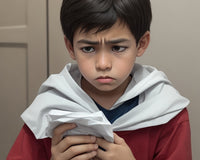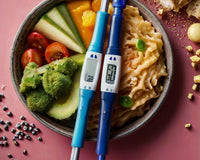HealthyPIG Magazine

Tips for better sleep when you have severe eczema
Not only can your health and mental health be affected by a lack of sleep, but your eczema can also become worse.
A large 2015 study surveyed nearly 35,000 U.S. adults and found that people with eczema were more likely to experience fatigue, daytime sleepiness, and insomnia.
Participants also reported increased sick days and doctor visits related to eczema-related sleep disturbances. They even found an increased risk of psychological problems and workplace accidents.
But when you have severe eczema, you don't have to worry about getting a good night's sleep. Here are some tips you can try to get more sleep and get a better night's rest.

Sexsomnia: What to know about sleep sex

Autism sleep problems
A good night's sleep isn't guaranteed for anyone, but it's downright elusive for many people with autism. People on the spectrum often have difficulty falling and staying asleep. This may worsen some of their conditions, such as repetitive behaviors, which can make sleep more difficult. Given this destructive feedback loop, sleep issues are one of the most pressing concerns for families struggling with autism. But it also happens to be one of the least researched aspects of autism so far. Here's what researchers know so far about the causes, consequences, and treatments for sleep problems in autism.

Minimally Invasive Radiofrequency Surgery for Sleep Apnea

The effect of lack of sleep on the body
f you have tossed and turned overnight, you will know how you felt the next day—tiredness, irritability, and confusion. But missing the recommended 7-9 hours of sleep per night will not only make you feel groggy and grumpy. The long-term effects of sleep deprivation are real. It exhausts your mental capacity and puts your physical health at real risks. Science has linked lack of sleep with many health problems, from weight gain to weakened immune system.

Does the moon phase affect your sleep?
For thousands of years, people have been speculating about the impact of the moon on human health and behavior. The ancient Roman philosopher Pliny the Elder claimed that the moon can "penetrate everything" and conducted a theoretical analysis of its influence on tides, marine life, plants, animals, and human activities. Although science has since explained some lunar phenomena, such as tides and solar eclipses, there are still many problems shrouded in mystery. Perhaps the most common lunar legend is the moon’s ability to influence behavior at night. There is no shortage of stories about night chaos, sleep disturbances, and insomnia driven by the inestimable power of the moon. But is there anything in folklore? Modern research methods have a new understanding of the relationship between moon phases and sleep.

9 drinks to help sleep
As an important part of health, a good night’s sleep is often overlooked. Experts recommend that adults aged 18-60 get at least 7-9 hours of sleep every night. Too little or too much sleep increases the risk of depression, diabetes, heart disease and even death. But getting at least 7 hours of sleep every night is not always easy. Fortunately, various hypnotic drinks can help some. Here are 9 drinks that can naturally improve sleep.

9 natural sleep aids can help you sleep
Adequate sleep is very important to your health. Sleep helps your body and brain function normally. A good sleep helps to improve your learning ability, memory, decision-making ability, and even your creativity. In addition, lack of sleep is associated with an increased risk of diseases such as heart disease, diabetes, and obesity. Nevertheless, the quality and quantity of sleep are at the lowest level in history, and more and more people sleep poorly. Remember, good sleep often starts with good sleeping habits and habits. However, for some people, this is not enough. If you need a little extra help to get a good night’s sleep, consider trying the following 9 natural sleep-enhancing supplements.

How the full moon affects your sleep
A new study found that we sleep less in the night before the full moon, but researchers don’t understand why this happens. Researchers have observed those who live without, limited and full use of artificial lighting, and found that as the lunar cycle progresses, the same changes in sleep will occur. We have all heard stories about things getting a little strange during the full moon. However, a study published on Wednesday, January 27th, showed that the lunar cycle does affect the way you sleep.



